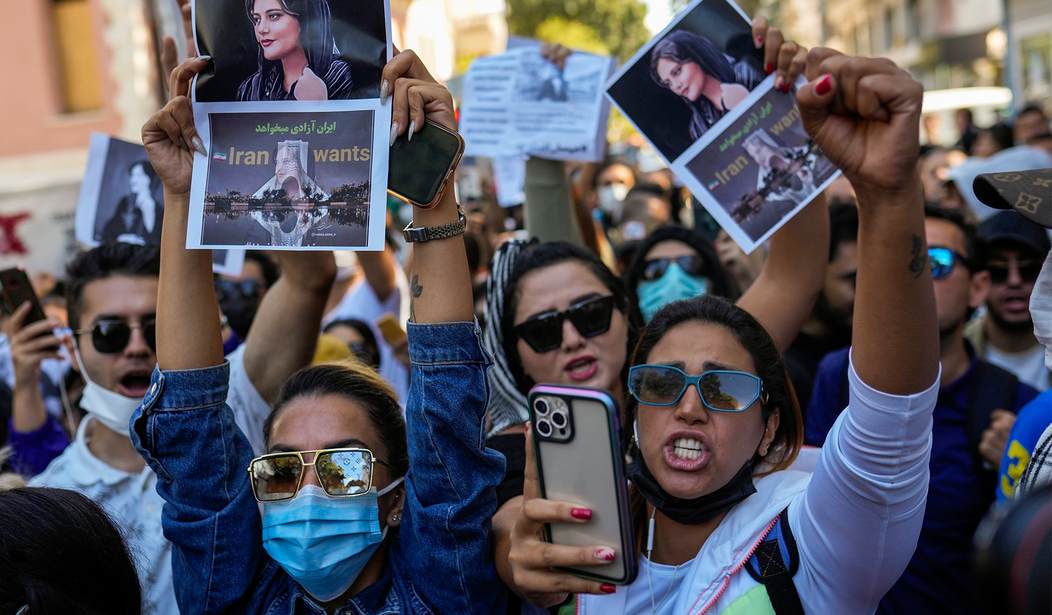The U.S. Congress has long stood as a global advocate for liberty, and its continued support for a free and democratic Iran reflects that enduring commitment. Iran’s deepening crisis—driven by widespread unrest, economic collapse, and growing defiance—combined with seismic shifts across the Middle East, has cracked the myth of the regime’s permanence. Most notably, the fall of Syria’s Assad regime—a longtime linchpin in Tehran’s regional axis—has further eroded the perception of Iranian invincibility. For the first time in decades, a sense of genuine hope has emerged: that the regime’s collapse is not only possible, but near. In this climate, a wave of proposals has emerged on both sides of the Atlantic aimed at accelerating the regime’s downfall.
However, one such proposal, “Maximum Support” bill—introduced by Republican Representative Joe Wilson and formally titled “Establishing a Program and Strategy to Promote Internet Freedom and Counter Censorship Efforts in Iran and for Other Purposes”—deserves closer scrutiny. Though intended to aid the Iranian people’s struggle against theocratic tyranny, it rests on a flawed assumption: that encouraging defections and funding nonviolent opposition will catalyze regime change.
While Iranians yearn for firm international backing against their oppressors, this legislation risks being exploited by both the regime itself and the remnants of a discredited monarchy. In doing so, it sidesteps the Iranian people’s true aspiration: the establishment of a pluralistic republic grounded in the separation of religion and state.
While its intentions may be sincere, the plan hinges on a flawed premise: that regime change can be sparked by enticing defections and bankrolling nonviolent opposition. It sends an unintended message to Iran’s tyrants: no matter their atrocities, the people will remain defenseless. America’s own history offers a stark reminder of a different truth. As Thomas Jefferson famously declared, “Against violence actually offered, in defense of that freedom which is our birthright, we have taken up arms. We shall lay them down when hostilities have ceased on the part of the aggressors, and all danger of their being renewed have been removed, and not before.” When faced with a tyranny that brutalizes its citizens, the people have an inherent right to fight for their freedom—a right that must not be diminished or ignored.
Recommended
Equally troubling is the proposal to offer financial inducements to “defectors” and “deserters” from the regime, particularly from the IRGC. This approach risks rewarding individuals who have spent decades steeped in crimes against humanity and genocide. Imagine the Allies in the 1940s dangling financial incentives before the Gestapo or SS to dismantle the Nazi regime—an absurdity that mirrors this misguided strategy. The IRGC is not a collection of wavering conscripts; it is a vested pillar of the regime’s power, enriched by a network of privilege and profit. To believe they can be swayed by foreign promises is to misunderstand the nature of this dictatorship.
The bill’s call for a fund to support “strikers,” “individuals and entities inside Iran,” or “medical supplies” raises further concerns. On the surface, it appears benevolent, but in practice, it is neither feasible nor effective. Such resources would likely fall into the hands of the regime, its agents, or its foreign proxies, who could wield them to discredit genuine opposition by tying it to American influence. Tehran has perfected the art of co-opting dissent under the guise of stability; external funding risks tainting authentic resistance as a Western puppet show, handing the mullahs a propaganda victory.
These flaws are underscored by the bill’s swift endorsement from remnants of Iran’s monarchy and their cliques—groups notorious for infiltration by the IRGC and regime intelligence. Their recent chants in Geneva of “The God of every Iranian is King Reza Pahlavi!” reveal a troubling agenda: not the liberation of Iran, but the resurrection of a discredited past. The Iranian people have shed blood and treasure in their fight against the current regime, not to replace one form of autocracy with another. They seek recognition of their struggle—particularly the courage of their youth, who confront the IRGC head-on in a battle to topple this oppressive system.
Congress must tread carefully. The Iranian people’s fight is their own, forged in the streets and sustained by their resilience. A policy that inadvertently bolsters the regime’s grip or elevates opportunistic exiles undermines that struggle. America’s support should amplify the voices of Iran’s true resistance, not drown them out with ill-conceived schemes. History—from Iraq to Libya—warns of the consequences of hubris disguised as liberation. Let us honor the Iranian people’s quest for freedom by ensuring our actions align with their vision, not the delusions of those who would exploit it.

























Join the conversation as a VIP Member